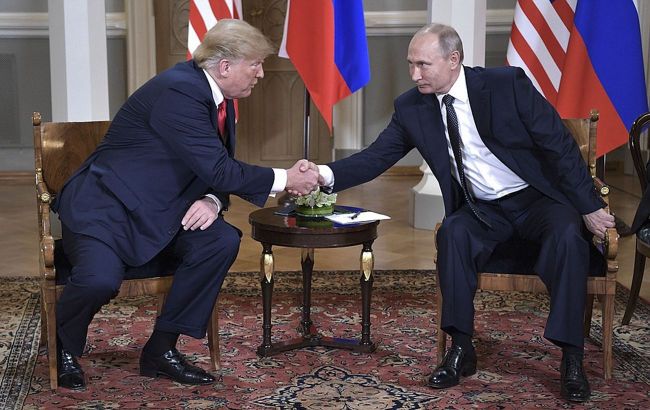Kremlin’s NATO gambit pushes US toward possible concessions, ISW reports
 US President Donald Trump and Russian President Vladimir Putin (Photo:Getty Images)
US President Donald Trump and Russian President Vladimir Putin (Photo:Getty Images)
Russia is receiving favorable signals from the US regarding NATO expansion and is attempting to reshape Europe’s security architecture to serve its interests, reports the American Institute for the Study of War (ISW).
The report notes that Russian authorities are receiving significant concessions from the US and are putting forward new demands to Ukraine and the West.
For example, on May 30, Kremlin spokesperson Dmitry Peskov said that Russian officials are encouraged by the Trump administration’s stance, which shows an understanding of Vladimir Putin’s concerns about further NATO expansion to the east. He added that Russia has already voiced these concerns to the US during closed-door talks.
Peskov emphasized that Washington’s stance on future NATO expansion is very attractive to Russia, especially since the US continues to play a mediating role in the war termination talks.
Experts recalled that US officials previously expressed willingness to consider Russia’s objections to Ukraine’s possible NATO membership — one of Russia’s key demands, which it calls the root cause of the war. In exchange, Moscow offered concessions on other issues.
Analysts believe Peskov’s statement reflects Russia’s conviction that the US supports its demand to change the Alliance’s fundamental open-door policy.
"Such a commitment would effectively grant Russia a veto over elements of the NATO charter, disproportionally benefit Russia’s desired postwar security posture, and undermine US President Donald Trump‘s stated objectives of achieving a just and lasting peace in Ukraine," the ISW report states.
At the same time, experts pointed out that Russian officials continue to leverage US concessions in negotiations and potential post-war security agreements without making any reciprocal moves.
As an example, ISW highlighted that the Kremlin refuses to give up its claims on territories currently controlled by Kyiv in the partially occupied Kherson and Zaporizhzhia regions.
Russia’s demands on Ukraine’s NATO membership
After taking office, US President Donald Trump began expressing doubts about Ukraine’s prospects for joining NATO.
Pentagon Chief Pete Hegseth described the possibility as unrealistic.
Trump’s special envoy for Ukraine and Russia, Keith Kellogg, said on May 30 that the US recognizes Russia’s concerns about NATO’s eastward expansion and is willing to discuss the issue as part of the peace talks.
Earlier, Czech President Petr Pavel also agreed that Ukraine’s NATO membership currently seems unlikely given Washington’s stance.
NATO Secretary General Mark Rutte emphasized that Ukraine’s membership in NATO is inevitable in the long term, but it will not be part of any war-ending agreements.

